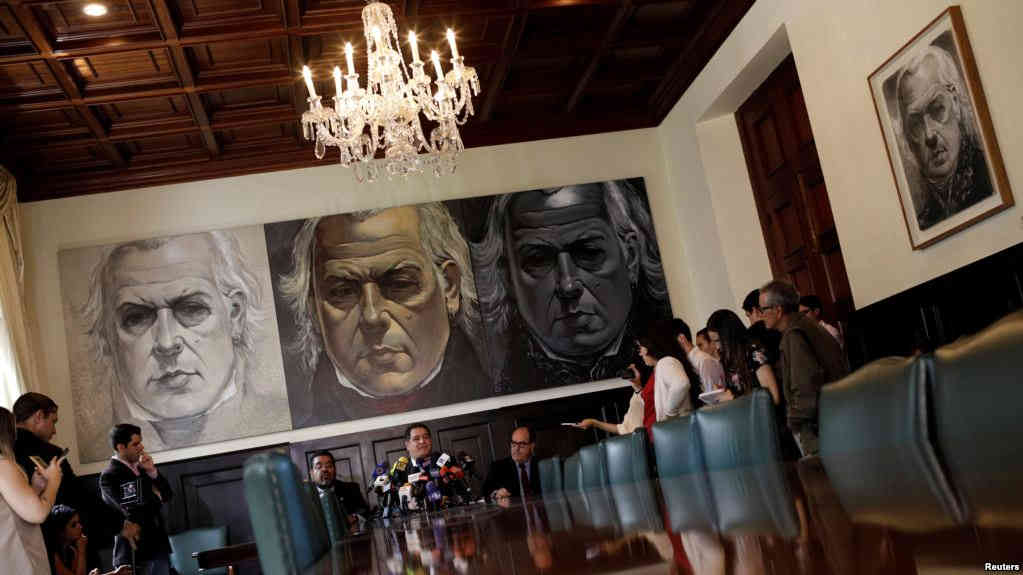Venezuela’s opposition said on Tuesday it would not send representatives to the Dominican Republic for talks with President Nicolas Maduro’s government due to lack of progress on issues from human rights to elections.
Following months of anti-Maduro protests earlier this year, which led to at least 125 deaths, both sides sent delegations to meet the Dominican Republic’s president this month for talks.
The talks were to find a possible solution to Venezuela’s deep political crisis.
But the opposition said on Tuesday it was pulling out of the talks planned for Wednesday for fear of a time-wasting “show”.
It said this may hand the unpopular Maduro a breather in the midst of economic crisis.
“There won’t be anyone traveling to Dominican Republic,” opposition Democratic Unity coalition tweeted.
“We hope that in coming days they meet requirements. But our desire is that this comes to fruition.’’
The opposition want a date for the next presidential election, due by the end of 2018, with guarantees it will be free and fair.
It is also calling for freedom for hundreds of jailed activists, a foreign humanitarian aid corridor, and respect for the opposition-led Congress.
Opposition leaders face scepticism from their supporters, with many of them viewing a potential negotiation as a betrayal of dead protesters and legitimisation of an autocrat.
Maduro, however, is eager to show the world his government is entering a dialogue following U.S. financial sanctions which have further battered Venezuela’s economy.
Amid a fourth straight year of recession, millions of Venezuelans are suffering food shortages and rampant inflation.
With Spain pushing for the EU to adopt restrictive measures against members of the Venezuelan government, Maduro may be hoping to dodge further sanctions.
The Information Ministry did not immediately respond to a request for comment.
Maduro says the opposition members are coup-plotters seeking to sabotage socialism in oil-rich Venezuela under the guise of peaceful protests.
He says a recently-constituted legislative superbody has brought peace to the South American nation of 30 million.
But many major foreign powers do not recognise the body, given its origins in a controversial election the opposition boycotted.

